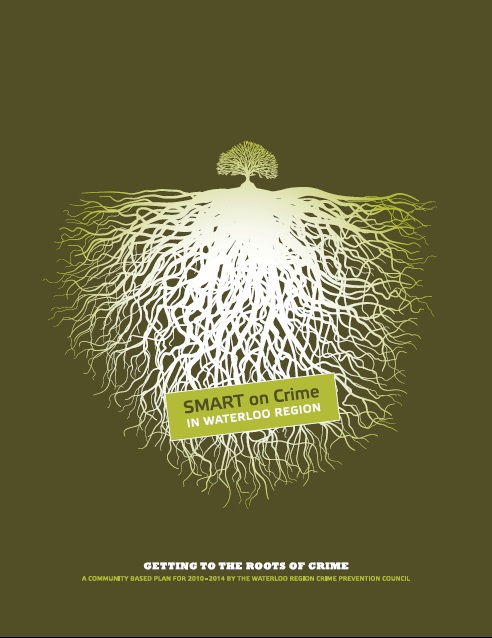Vision / Commitment / Values
VISION
A safe, equitable, and just community where everyone has access to opportunities to thrive, to love, and be loved.
COMMITMENTS
We work with communities and systems to address barriers and amplify voices not being heard. We prevent and reduce social harms by driving structural change through evidence informed strategies that address the root causes and honour diverse ways of knowing and being.
VALUES
Collaboration – We believe that crime prevention cannot be done by any one person or organization. It takes all of us working together in partnership.
Commitment – We believe that the creation of a safe and promising future for all people in our community takes time and perseverance.
Compassion – We believe that a compassionate world is a peaceful world and this becomes possible when everyone is treated with dignity, equity and respect.
Courage – We believe in honest dialogue, challenging misconceptions, facing uncertainty and, at times, making bold decisions.
Download our CPC – Mission Vision Values 2015
(Updated 2021 CPC – Vision Commitment Values coming soon)
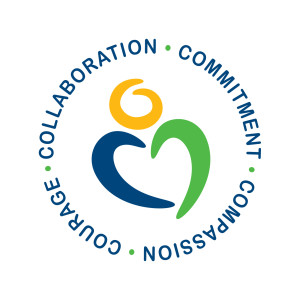
OUR VISION IN CONTEXT
We acknowledge that intersecting systems of domination such as white supremacy, colonialism, capitalism, patriarchy and ableism that deny many in our community access to safe, equitable, and just opportunities. Because of these systemic harms our vision is not easily attained and will require deep structural transformation. We commit to engaging in transformational work until our vision is fulfilled.
MANDATE
We engage and connect citizens, decision makers and service providers in order to reduce and prevent crime, victimization and fear of crime through information sharing, public education and awareness raising, promotion of partnerships, focused problem solving, evidence based interventions, policy development, supporting grassroots initiatives, advising local government, capacity building, and advocating for change.
- Decision-making is shared
- Bottom-up approaches are encouraged
- Differences between people are respected
- Strengths and resources are emphasized over and above needs
- Attention stays focused on the context in which crime happens
- Research evidence and community knowledge are consulted frequently
HOW WE DO OUR WORK
Community Engagement – working with community where they’re at, mobilizing community, and amplifying existing partnerships and community conversations
Knowledge Mobilization – generating, sharing, and applying key concepts and research to address issues of social harm
Backbone Support – providing the support to get the work started and stepping away, policy development, advocacy, and navigating systems
Smart on Crime
Preventing crime before it happens, is the smart thing to do.
Smart on Crime in Waterloo Region is our community plan for engaging the entire region, from the grassroots to the highest levels of decision making. Everyone can contribute to the health and safety of our community.
We are inspired to work for social justice and positive change by addressing the root causes of crime.
Smart on Crime 2015-2018
Our Smart on Crime 2015-2018 community plan was the road map guiding our work over the these four years.
Read the Smart on Crime 2015-2018 Plan
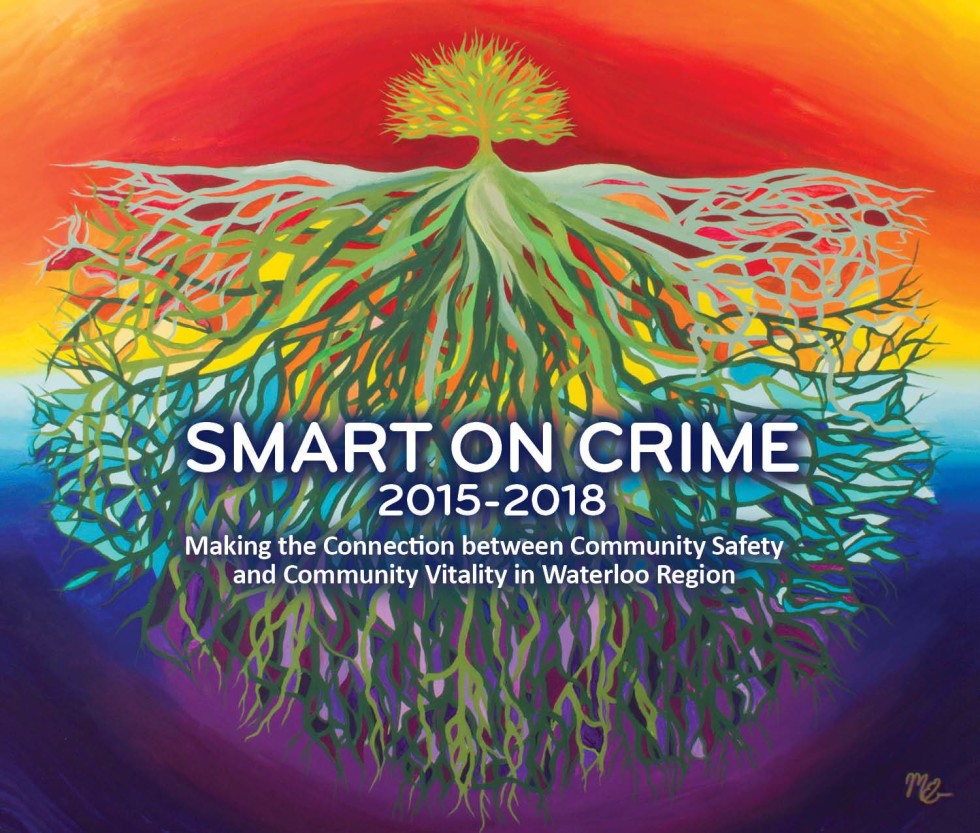
In 2014 we consulted with nearly 1,500 people in our community through surveys, focus groups and community consultations. The data we gathered revealed a number of themes related to root causes of crime that helped to shape the direction of this Smart on Crime plan which focuses on three priority areas:
- Youth: Unleashing the Potential of ALL Youth
- Neighbourhoods: Building Local Capacity for Change
- Smart on Crime: Advancing the Momentum
View a summarized version of the plan or print your own copy. The data is available in a background document:
Root Causes of Crime in Waterloo Region Consultation Report (2015)
Together we will continue to build a community that is safe and vibrant for all people living in Waterloo Region.
So how did we do?
An external evaluation of the Waterloo Region Crime Prevention Council’s Smart on Crime Community Plan (2015-2018) demonstrates that the efforts of Council and staff provide high value across multiple systems and sectors at local, provincial and national levels in preventing and/or reducing victimization and fear of crime. Findings and recommendations provided by the evaluators illuminate steps for increasing the collective impact of WRCPC’s efforts.
Between September 2016 and April 2019, a team at the Centre for Community Research, Learning and Action (CCRLA) at Wilfrid Laurier University conducted an evaluation of the Waterloo Region Crime Prevention Council’s (WRCPC) 2015-2018 Smart on Crime Community Plan.
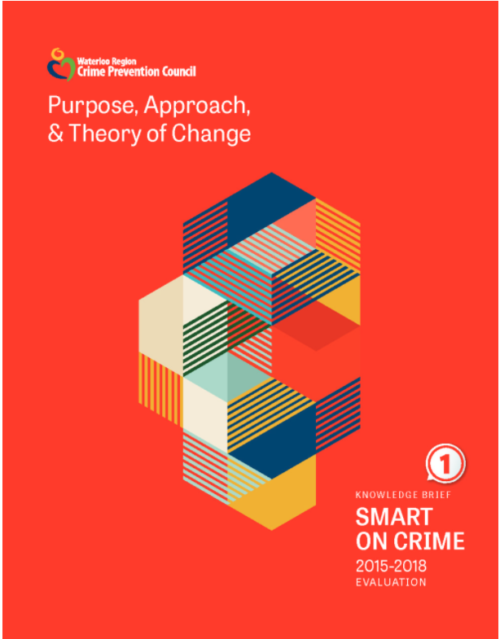
Among its stakeholders, WRCPC is seen as a catalyst that plays an important leadership role in convening partnerships and incubating new initiatives that advance the principles of being ’smart on crime’.
The goal of the evaluation was to assess the implementation of this plan and its impact on advancing crime prevention through social development in Waterloo Region and beyond. A key aspect of the evaluation considered WRCPC’s role and its value. Furthermore, the evaluation identified opportunities to optimize WRCPC’s role and provide insights for its future directions.
The first phase of the evaluation focused on outlining WRCPC’s theory of change as well as its goals, objectives and key functions.
The second phase consisted of two parts: 1) a survey with systems stakeholders, community members, and WRCPC members and staff, followed by 2) a qualitative study using the Most Significant Change Technique i.e. collection of stories of change in the community. Detailed findings are outlined in five knowledge briefs, which are available through the WRCPC office.
The evaluation will deliver FIVE knowledge briefs (KB), which feature the following topics:
- The purpose of the evaluation, the evaluation approach, and methodology, as well as the theory of change (KB1).
- The three most significant change stories that represent the contributions of WRCPC in the community through the Smart on Crime plan (KBs II-IV), and
- An overall summary of key findings with recommendations for future strategic actions and directions (KB5)
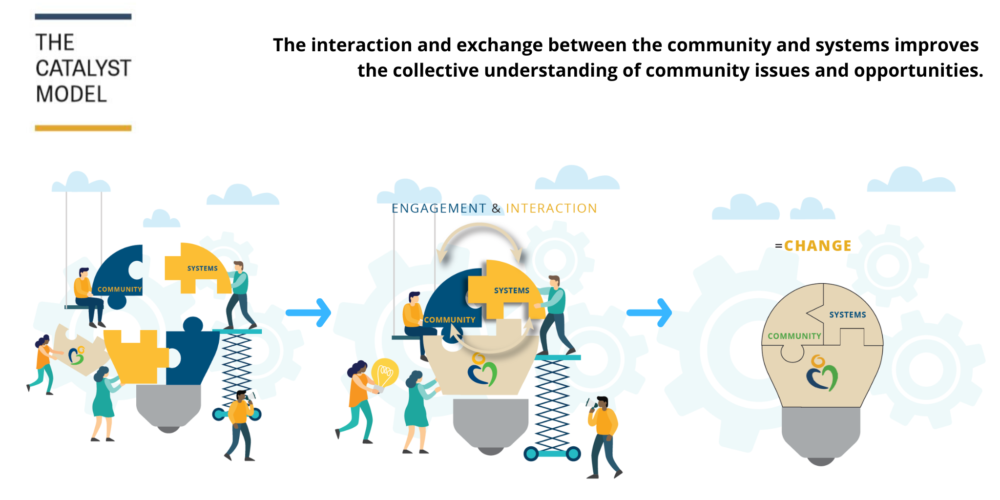
Smart on Crime 2010-2014
Smart on Crime in Waterloo Region (2010-2014) was our first community plan released under the ‘Smart on Crime’ theme. It established a solid foundation for an approach to community safety that focused on local needs and capacities.
View the 2010-2014 Smart on Crime Plan.
So how did we do?
The Evaluation summary tells the story of some of our achievements and challenges, provided insights into the lessons learned and made recommendations for the next phase.
The evaluation measured the following areas of impact: Reach, Understanding Change. Read the Evaluation Summary .
Smart on crime means …
making prevention a community priority.
